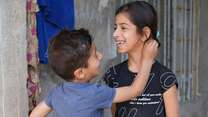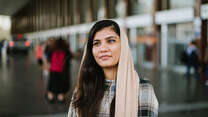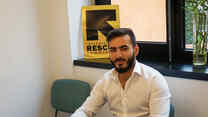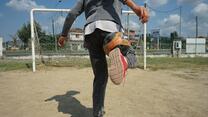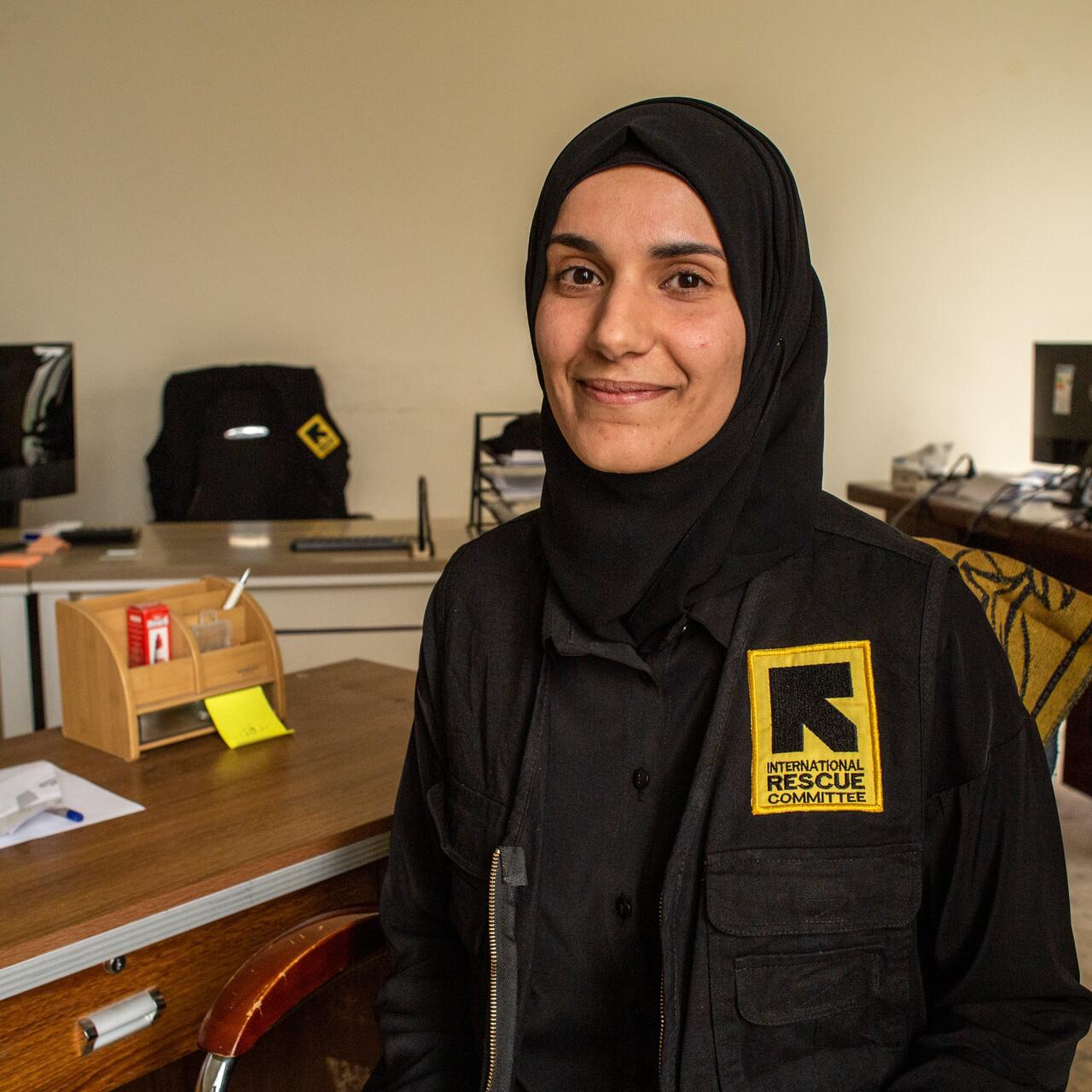
Marwa is a 28 year old lawyer originally from Baghdad, who now lives in Anbar, Iraq. She has been working with the IRC since 2021, helping clients get the support they need for legal matters dealing with the government.
She came to love leadership because of challenging life experiences; her eldest brother died when she was only 12 years old. This put a lot of pressure on her and her sisters; their younger brother was too young to help the family financially. “At that time, people told me that girls amount to nothing, that they would get married and leave eventually. So, I was determined to prove myself, and prove them all wrong,” she says.
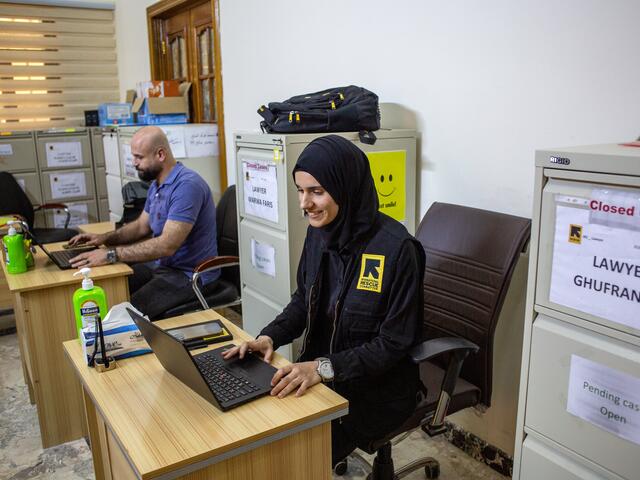
She started working after graduating and obtaining her law license. After receiving her graduate degree, Marwa further enrolled herself in a PhD program. Marwa talks about the hardships of studying and working, simultaneously, within the field of law as a woman in Iraq. “Everyone said, 'we wish our sons were like her.’ I always want to be my best, continuing to break this stereotype,” she says, a proud smile on her face.
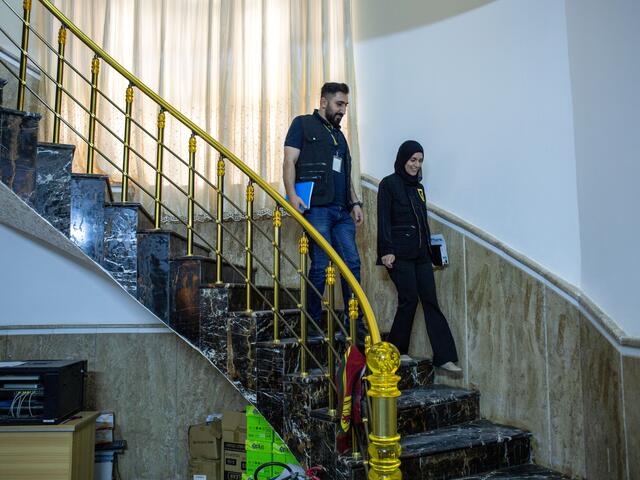
More than five years after the end of the conflict with the so-called Islamic State (ISIS) in Iraq, many communities remain in need of humanitarian and longer-term assistance.
Among those most vulnerable are the hundreds of thousands of internally displaced citizens and returnee Iraqis who lack key civil documents, such as marriage and birth certificates, as well as national ID cards. Without these documents they lack legal status and face challenges accessing services, such as social welfare, education, and healthcare. Missing documentation also excludes Iraqis seeking to rebuild their lives after conflict - from finding jobs to applying for compensation for damaged homes and businesses.
As documented in the report in 2022, Life in the Margins, internally displaced persons (IDPs), returnee families, and women-headed households in particular, face multiple challenges in applying for civil documentation.
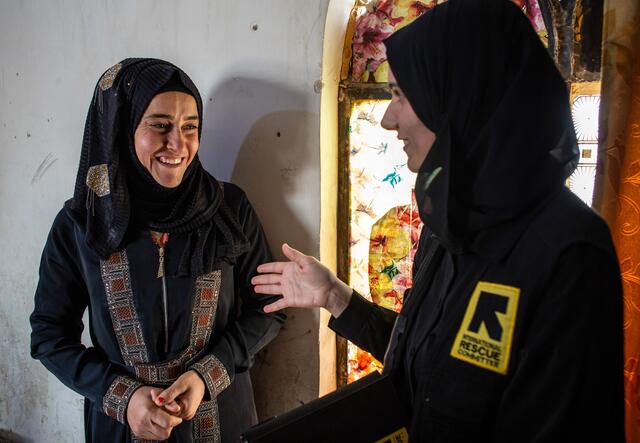
Marwa has been dedicated to helping displaced people seeking to rebuild post-conflict. The best part about her job, she emphasises, is when, after completing a case with a client, she is able to see the difference she has made in their life. She recounts the case of Enas, a client who was connected to the IRC legal support services that carried out an awareness session at the mosque near her home; Marwa was able to support Enas in receiving her civil identity documents.
Enas’ father remembers feeling relieved. “Ms. Marwa was following up on everything with us. She even stayed with us until we were photographed for the civil status IDs,” he says. Thanks to her tireless work, Enas and her younger siblings received their documents. Enas is looking forward to getting married and her siblings are able to go to school.
Another client Marwa was able to support - Subiha - recounts how Marwa was able to obtain nationality certificates for her grandchildren. These were essential for them to be able to be added to the ration cards, which then allows them to receive food and other basic necessities from the government.
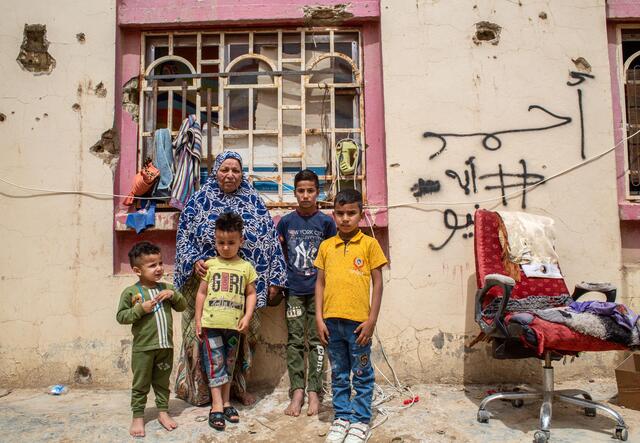
These documents are also essential for the children to have in order to be allowed to go to school, and Marwa is resolute in her goal to help every child she can to receive their basic rights.
She remembers how her father supported her throughout her journey becoming a licensed lawyer. “He didn’t object to anything I did. He used to encourage me, and tell me,“You are courageous in whatever you do,” ” she says.
Today Marwa’s teammates motivate her, boosting her morale each time she successfully concludes a client's case. Her ambition intensifies with every win. She hopes to be able to lead a team one day so her success can have an even further reach, and help more people in need.
The International Rescue Committee partners with the European Union to provide life-saving support to people caught in conflict and disasters around the world. Our work funded by the EU enables people to survive, recover and rebuild their lives.

